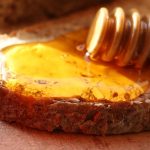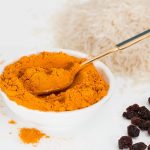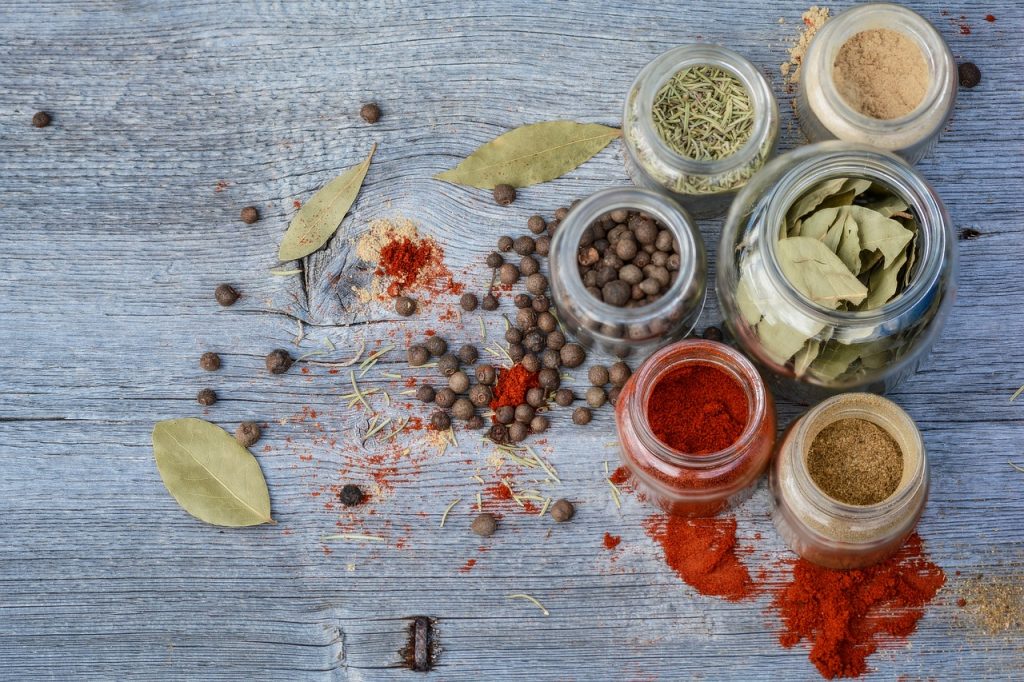Each of us has touched the prescribed by a doctor antibiotics. These days, these are some of the most commonly prescribed medications, and many of us readily agree to treat ourselves or even self-medicate with an antibiotic. The frequent use of antibiotics is also the main cause the increased resistance of viruses and microbes and the increasingly difficult treatment of diseases.
The most interesting thing is that
we are surrounded with natural antibiotics,
which can easily strengthen our body and give us cured of many diseases.
We have selected a selection of the most affordable and powerful means to take care of your health and strengthen your immunity:
Propolis
Propolis it can be used to treat colds, throat problems and toothaches, it can act against mycosis, it has healing properties and it is able to stimulate the body's immune resources. If you take propolis in low doses, you can block the bacteria, while, in higher doses, it kills the bacteria. Propolis also has an antioxidant effect valid against harmful free radicals. So he is excellent natural antibiotic against flu and colds not only for them.
Here's everything you need to know about propolis. What does propolis help?
Med

The honey it is often used externally to treat burns, ulcers, bedsores, infected wounds, or fungal infections. For minor wounds and burns, honey is applied directly to the skin and covered with a sterile bandage. The gauze was changed once or twice daily. For more serious injuries, talk to your doctor about using honey to help the healing process.
Research shows that honey can eliminate over 60 different types of bacteria.
Because of its antibacterial properties, honey is also recommended for direct consumption - it increases immunity and helps fight colds, flu and respiratory diseases. As a preventive measure, 1 tablespoon three times a day is recommended, and in acute conditions. once every hour. It's proved that honey works effectively and against helicobacter pylori, or stomach ulcer
Thyme
Thyme gives incredible flavor to dishes. It can be taken as a decoction and its oil can be used for acne and eczema. Because it is concentrated, it is recommended to dilute it with coconut oil or olive oil before applying it to the skin.
Thyme helps with colic, headache (including migraine), nervous tension, rheumatic pains. The herb has an anti-inflammatory, antibacterial, antispasmodic effect. It is used for all types of cough (as an expectorant, bronchodilator and disinfectant for acute catarrh of the upper respiratory tract, chronic bronchitis, whooping cough, bronchial asthma, dry and elastic cough, lung inflammations). S thyme gargle with sore throat, inflammation of the oral cavity and toothache.
9 health benefits of thyme. How to take thyme?
And a few more recipes with Thyme:
Potion - a handful of thyme is boiled in a liter of boiling water. It is drunk cold. Effective in stomach and intestinal infections.
Syrup – a handful of thyme flowers are placed in a jar and mixed with sugar. The mixture stands for three weeks in a dark place, after which it is filtered and brought to a boil. Helps with laryngitis and bronchitis.
Tea:
• Pour 1 teaspoon of the dried herb with 250-300 ml of boiling water. Leave for 10 minutes, strain and drink twice - in the morning and in the evening. It can be sweetened with sugar or even better – with honey.
• Pour 2 tablespoons of dried thyme with hot water and cover to infuse for 2 hours. Then it is filtered. The amount is drunk 3-4 times a day. It is taken half an hour before meals.
Oregano
Magnificent is a natural antibiotic oregano, and if you find oil of oregano, it is even more useful. It is obtained from the leaves of this aromatic spice and contains a substance with many benefits antibacterial properties. The oil allows you to fight many infections and is much more effective than antibiotics that are sold in pharmacies.
Oregano oil destroys pneumococci, staphylococci, streptococci and enterococci, and is also effective in fighting 25 bacteria, including those that are resistant to chemical antibiotics.
Oregano oil is great for people with intestinal infections, typhoid, urinary tract infections, cholera, skin infections and ulcers. It also protects against colds, measles and mumps. The oil reduces inflammation from knife wounds or animal bites and neutralizes venom from bees, snakes or spiders.
The 10 Best Herbs to Boost Energy and Focus
Basil
Basil, in addition to being a wonderful food supplement, it also has disinfectant properties bactericidal properties and protects the body from many infections.
Here is a recipe for angina: pour 4 tablespoons of finely chopped basil leaves with 250 ml. hot water and let it boil for 20 min. After it cools down, strain the decoction and gargle with the resulting solution 2-3 times a day.
Grapefruit seed extract
Also, let's not forget another representative of useful natural antibiotics when needed - grapefruit extract, which manages to defeat more than a hundred types of fungi and about 800 bacteria. This seed extract can be used in forms of influenza, in gastrointestinal infections, in some mycoses, especially when these diseases are due to a weakening of the immune system. We can find grapefruit seed extract in the form of a food supplement in pharmacies or in diet shops.
Tea tree oil
Tea tree oil is an essential oil that is extracted from the tea tree. It grows in Australia. This oil is found to have powerful antibacterial, antifungal and antiviral properties and is especially recommended for treating skin problems such as sunburn, gingivitis, cold sores and insect bites, among others.
8 health benefits of aroma lamps
Turmeric

Turmeric contains the active substance curcumin, thanks to which the drug is a "miracle" of nature and is characterized by advantages that are complemented by the rich content of vitamins of group B, vitamin C, K, zinc, calcium and others.
Turmeric stands out above all with its antioxidant action, combined with its antibacterial activity. As an additional characteristic of turmeric, its hepatoprotective and anti-ulcer effects are highlighted. At the same time, turmeric exerts anti-inflammatory activity by lowering the levels of histamine and prostaglandins, which provoke inflammatory processes in the body. Curcumin has an anticoagulant effect and is a reliable remedy against ischemic stroke and myocardial infarction.
And here's more information about turmeric: Here
Turmeric is a medicine for 8 of the most serious diseases. Benefits of Turmeric
Garlic
Another natural antibiotic is garlic, rich in mineral salts and various types of vitamins, including A, B1, B2 and C. A powerful bactericide and antiseptic. It also stimulates the heart and facilitates circulation, allowing blood purification. Garlic is also effective against various microbes.
Folk recipes for lowering high blood pressure (Part 1)
Colloidal silver
Benefits of colloidal silver. Perhaps not everyone is familiar with colloidal silver, which provides an important aid to health and beauty. This natural remedy is beneficial for the skin and acts as an antibacterial, antiviral and antifungal agent. In the past it was also used for gargling, vaginal washes and for skin disinfection even in the presence of burns and wounds.
Lemon
Lemons also belong to the group of natural antibiotics. In addition to the high content of vit. With, the lemons contain many flavonoids and other beneficial ingredients, it can be used against bronchitis, adding its juice to herbal tea along with garlic. The lemons they allow us to fight germs and reduce fever, if any. Lemons are also useful for many other conditions and diseases, even for cancer and other serious diseases they are recommended to the diet of the sick.
24 benefits of lemon that you did not know about
Cabbage
Did you know that this vegetable was once called the "poor man's doctor"? It was used by sailors to ward off scurvy and also as an ancient remedy for tuberculosis. Cabbage leaves have long been used to treat infected wounds and joint and muscle pain.
Numerous modern studies have proven the antibacterial effect of cabbage. Also note that raw cabbage should be avoided by those with elevated thyroid function.
And finally, a little topic to think about before reaching lightly for another antibiotic:
The rapid increase in drug-resistant diseases has raised awareness of the problem of antibiotic overuse. The problem with pharmaceutical antibiotics lies in their simplicity, says Steven Harrod Buechner, author of Herbal Antibiotics. "Synthetic antibiotics are nothing more than a single compound, monotherapy, static bacterial killer," he says. However, bacteria are living organisms that have evolved an evolutionary response to the threat of antibiotics. They are constantly evolving, so it is difficult for pharmacists to develop new and new drugs to deal with them.
Plants, on the other hand, have the same property as bacteria, to develop new mechanisms—inventing new chemical compounds that are able to deal with bacteria as a threat to sacred survival. Unlike pharmaceutical antibiotics, herbal antibiotics have 200 different chemical compounds that work together and in sync to kill bacteria. This multifaceted approach prevents bacteria from developing resistance to the bactericidal properties of plants and makes them the more effective way to treat diseases.
The teacher Petar Danov: 19 foods for the Tsar





Comments are closed.